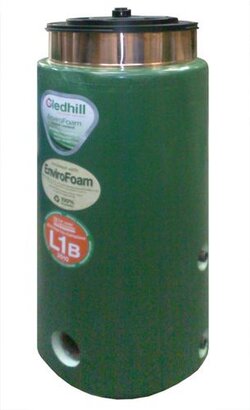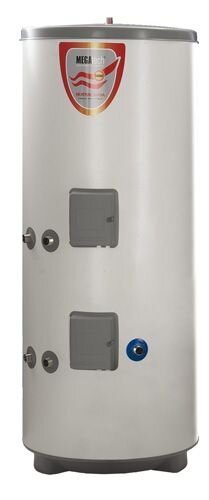Globalti
Legendary Member
We had an ancient boiler with a cast iron heat exchanger that was weeping at the joints and fizzing and steaming as it heated up. It carried on though and did the job effectively, we had lashings of hot water. My neighbour, a retired plumber, told me that in the good old days plumbers would dismantle the heat exchanger and fit new gaskets. Eventually though it had to go and it wasn't until I tried to move the cast iron core that I realised why the industry has gone over to pressed stainless steel heat exchangers; the damned thing was back-breakingly heavy to lift and certainly couldn't have been wall mounted. Stupidly I took it to the dump and threw it in a skip rather than the local scrapyard.....
The new boiler is a condenser; it is fiendishly complicated and very sensitive; it even conks out when there's a bit of air in the pipes. We have never been convinced that it fully meets our hot water requirements. We trust it so little that for the first time ever we have actually paid for an extended warranty, which we have already used once. When it does throw a wobbler they usually come very promptly but they make no attempt to diagnose the fault, they just throw new parts at it in the hope of fixing the problem, just like your car dealer. It has a fan to blast out the exhaust gases and the condensate drain runs inside into the drains so no freezing problems last winter. We think it has reduced our gas bills by abut 40% though; not certain about that because at the same time it was fitted I doubled up the insulation in the attic, which also makes a big difference.
If nothing else the new boiler is smaller, is hidden at face level inside a cupboard and is certainly using less gas. It does warm the rads up faster than the old one did so I suppose it is better.
The new boiler is a condenser; it is fiendishly complicated and very sensitive; it even conks out when there's a bit of air in the pipes. We have never been convinced that it fully meets our hot water requirements. We trust it so little that for the first time ever we have actually paid for an extended warranty, which we have already used once. When it does throw a wobbler they usually come very promptly but they make no attempt to diagnose the fault, they just throw new parts at it in the hope of fixing the problem, just like your car dealer. It has a fan to blast out the exhaust gases and the condensate drain runs inside into the drains so no freezing problems last winter. We think it has reduced our gas bills by abut 40% though; not certain about that because at the same time it was fitted I doubled up the insulation in the attic, which also makes a big difference.
If nothing else the new boiler is smaller, is hidden at face level inside a cupboard and is certainly using less gas. It does warm the rads up faster than the old one did so I suppose it is better.


